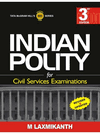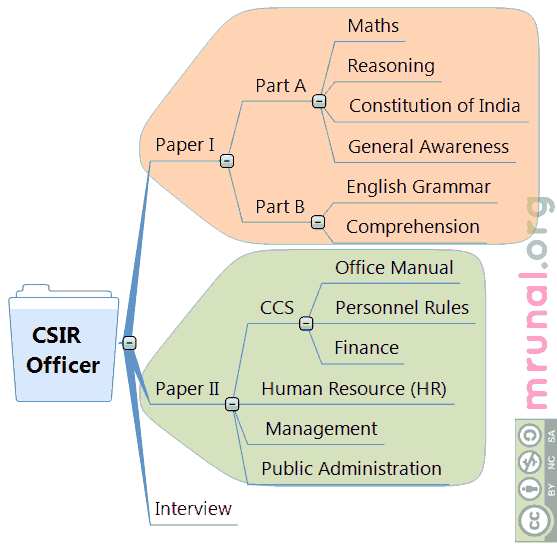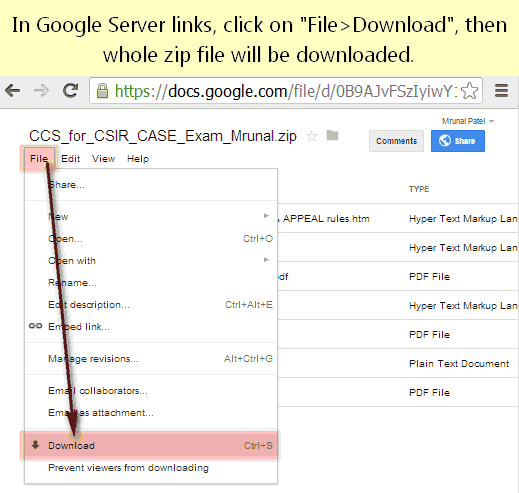To those readers with Public Administration/ Management as their optional subject in UPSC/RAS/PPSC/KAS etc. here is a good opportunity: CSIR Administrative Officer Gr-I
- Scheme of exam
- CSIR CASE Paper I
- Paper II: CCS+HR+Management+PubAD
- Unwanted Tips
- Appendix: Free CSIR/CASE Study Material (Download Links)
- Previous papers and Cut offs
Scheme of exam
- Any graduate can apply Click me for Age limit-Syllabus
- Last date of application: 15 January 2013: Click ME to apply
- Negative marking=Yes (Minus 0.25 marks per wrong question)
- Descriptive paper or Essay =No.
Notification says, CSIR *may* fix separate minimum cut-off marks for each paper. Anyways let’s check the topicwise booklist, strategy
CSIR CASE Paper I
Reasoning (20 Qs)
  |
|
Maths (20 Qs)
  |
|
You may also consult NCERT Class 7 to 10 Mathematics textbooks for clearing basic concepts. They can be downloaded for free, using http://www.ncert.nic.in/
Constitution of India (20 Qs)
| Medium | Book |
| English | Indian Polity by M.Laxmikanth |
| Hindi | Bharat Ki Rajyavyavastha by M.Laxmikanth |
Two reasons why you should religiously mugup M.Laxmikanth:
  |
How to efficiently read this book, has been explained here in a separate article: CLICK ME |
After you’ve done reading Laxmikanth, solve all the MCQ questions given at the end of that book.
General Awareness (40 Qs)
| Subtopic | Source |
| General Science | NCERT Science Textbook Class 7 to 10 |
| Scientific Research |
|
| Geography |
|
| Economics |
|
| General Polity | Lolz again mentioned. Anyways same Indian Polity by M.Laxmikanth |
| Current Events | Newspaper. (Hindu or Indian Express).Monthly Current Affairs from Competitionmaster.com (Start from Jan 2012) |
Please note:
- The CSIR notification doesn’t explicitly mention “History”. However just to be safe, also prepare History from NCERT Textbook because indirectly it is General Awareness.
- Download links for NCERT and NIOS material given @bottom of this article.
- Newspaper= The Hindu OR IndianExpress (use any one). Don’t waste time in Dainik Bhaskar, Times of India etc. How to use newspaper for current affairs preparation =explained in separate article click me.
- Newspaper = long term investment (for profile and opinion based questions in interview in all exams be it Bank or MBA.) So don’t think that newspaper reading is meant for IAS exam only.
Paper I: Part B English (50Qs)
| Subtopic | Source |
| Comprehension | Practice. Download old papers of IBPS, UGC etc. |
| Active, passive direct indirect etc |
|
| Preposition, fill in the blanks | |
| Synonym, antonyms | |
| Sentence correction | |
| Punctuation, idioms, phrases |
Also follow the discussions on Pagalguy forum’s verbal section: http://www.pagalguy.com/forums/verbal-ability/
Paper II: CCS+Mgmt+HR + PubAD+CCS
This paper has 150 marks, 150 Qs, 150 minutes.
Overview:
| topic | No. of Qs | Source |
| Central Civil Service (CCS) Rules, Manuals etc. | 60 |
|
| Human Resource Management (HR) related | 40 |
|
| Management (MBA) related | 25 |
|
| Public Administration | 25 |
|
| Total | 150 |
Now let’s check the topicwise approach
Topic #1: Central Civil Service (CCS)
This topic is related with actual / real-life working of an officer in Central Civil Services.I’ve compiled the topicwise PDF files (links @bottom).
Fundamental Rules (FRs) and Supplementary Rules (SRs)
- These topics are related with “personnel matters” e.g. leave, promotion, disciplinary action etc matter applicable to officers in Central Service.
- You’ve to do selective reading of only those topics/information that can be asked from Multi-Choice Question format. For example: The leave travel concession (LTC) is admissible to the Central Govt. employees while on study leave.
- But No need to mugup minute details, dates, names, numbers.
General Financial Rules
- Given in CCS ZIP file @bottom.
- This deals with budget and Expenditure related matters in ministries and departments.
- From that PDF file, prepare Chapter 2, 3, 4, 5, 6 and 8.
- Again no need to go in minute details. Most of the content given in that PDF file is not ‘exam-worhty’.
- Just prepare stuff that can be asked in MCQ format. for example what items go in Capital account, what items go in Revenue account and so on.
- Also prepare Budget formulation topic from IGNOU Public Administration material (given @bottom).
Manual of Office Procedure (15 Qs)
- Given in CCS ZIP file @bottom.
- This topic deals with how to actually work in a Government office=how to draft letters, what to do with “daks”, record-keeping, filing, inspection etc.
- Same principle: Just get brief overview of Exam-worthy information. No need to do Ph.D For example
| Important |
|
| Useless |
|
Donot take this lightly, because CSIR notification explicitly mentions that 15 questions will come from this topic. This concludes how to approach CCS.
Topic #2: HRM (40qs)
This topic is to be prepared from selective study of IGNOU BA and MA Public Administration booklet codes EPA-01, MPA 013, 014 etc. I’ve compiled the IGNOU PDF files those selective topics. Download link given @bottom (HRM_CSIR.zip file). Only 2 topics missing
- Collaboration, Team Working & Networking;
- Facilities & Infrastructure Management
How to approach HRM for CISR?
- HRM topic might feel daunting and boring. Because they talk about lot of abstract stuff.
- BUT the concepts and principles related to motivation, communication, leadership, recruitment and promotion = very easy to frame MCQs from them.
- So prepare them thoroughly from the given PDF files. (without getting bogged down by the abstract and philosophical stuff).
- When you search HRM on egyankosh.ac.in, it throws up truckload of results. They’ve special courses of PG diploma in HRM etc. But those booklets go in way too much detail.
- On the other hand MA Public Administration (MPA-014) has covered HRM in very condensed form, therefore I’ve compiled the PDFs mostly from MPA-014 (and not the PGDHRM course).
- But if you’ve time (and mood) you may download PGDHRM booklets manually from egyankosh.ac.in
Management/ IT related (25 Qs)
The best way to approach = via selective reading of IGNOU’s MBA booklets. Goto this link: School of Management Studies (http://www.egyankosh.ac.in/handle/123456789/9
Search and download the respective PDF files according to the syllabus.
Management/ IT topiclist from official CSIR notification:
ERP Application & Operations’ Management,Business Process Reengineering, Functional architecture of ERP, What are the ERP packages being used now? Compiling functional requirements, UML Diagrams, ERP Solution architecture, Enterprise application implementation projects: Rationale for ERP, Process Flow Diagrams, Decision making, Analytics, Record keeping, Integrating Business Rules, Electronic Workflows, Management reporting, Business intelligence, Performance Metrics, GUI, Web services, Collaboration & networking, Integration interoperability configuration management, Cloud Computing, Software Reuse, management of risks, software Security, Recovery and failsafe management, Knowledge management, User Engagement, Change Management, Life cycle approaches, Software Audit, Reliability, manageability, availability, TQM, Business application areas of an organization including accounting and finance, HR, logistics & supply chain, client & stakeholder relationship management
^Some of these topics may not to explicitly mentioned in IGNOU coursebooklet titles so even if you search, you won’t find it. (because egyankosh seach engine is not optimized to scan PDF content.) So better consult some friends from MBA and Computer (BCA/MCA) course then search and/or borrow their books for selective study.
Public Administration including R.T.I Act (25 Qs)
Essential booklist
- Selective topics from IGNOU (free download link given @bottom.)
- + Indian Polity by M.Laxmikanth
How to approach?
There is lot of overlapping and synergy between Constitution of India topic from paper I (20 Qs) and Public Administration topic from Paper II (25Qs). Besides, nature of this topic= very easy to grasp the concepts and tick answers accurately (if you revise often).
| Topic | Preparation source |
| Executive, Parliament, Judiciary – structure, functions, work processes | Relevant topics from Laxmikanth’s Polity book. |
| Cabinet Secretariat, Prime Minister’s Office, Central Secretariat | IGNOU zip file given @bottom |
| Ministries and Departments, Machinery of Planning | |
| Planning Commission and the National Development Council | Chapter 44, 45 Laxmikanth’s Polity Book.IGNOU zip file given @bottom |
| Union-State Administrative, legislative and financial relations | Chapter 13 Laxmikanth’s Polity Book. |
| Role of the Finance Commission, | Chapter 37 Laxmikanth’s Polity Book. |
| Governor, Chief Minister, Council of Ministers, | Chapter 24, 25 and 26 Laxmikanth’s Polity Book. |
| Chief Secretary, State Secretariat, Directorates | IGNOU zip file given @bottom |
| Parliament control of public expenditure, | Chapter 22 Laxmikanth’s Polity book |
| Role of Finance Ministry | IGNOU zip file given @bottom |
| Panchayati Raj, Urban Local Government, | Chapter 30 and 31 Laxmikanth’s Polity book |
| Values in Public Service, | Lolz. Ethics, participation etc. either use egyankosh or just skip the damn topic. |
| Ministries and Departments, | Laxmikanth’s PubAd Book |
| Corporations, Companies, Boards | IGNOU @bottom + this articlehttps://mrunal.org/2012/04/economy-different-types-of-companies.html |
| Executive, Legislature and Judicial control over administration | Scattered around in IGNOU + Laxmikanth. |
| Citizen’s Charters, Right to Information, Social Audit, |
|
| Delegated legislation |
|
| Administrative Tribunals |
|
Side Note
Those CSIR aspirants, who’re simultaneously preparing for UPSC /State PSC (RAS, Punjab etc) with Public Administration optional subject:
- Prepare chapter 2, 4, 5, 7, 8, 9, 11 and 12 from M.Laxmikanth’s book on Public Administration AND solve the mock MCQ questions given at the end of those chapters.
Some unwanted advice, warnings etc.
- When we talk of IAS, CAT, IBPS= these exams are held at regular interval, hence there is lot of information, experience-sharing and material from reputed book publisher (Tata Macgrawhill, Pearson, Arihant, S.Chand etc).
- But Exams like RBI, APFC, CSIR = Diwali time for some moneyminded people. They just assemble topics from here and there, come out with some “Readymade guidebook/Material” for Rs.2000, 5000 or 6000/– (depending on how rare the exam is and how desperate the public is.) don’t waste your precious money on such things. Always prefer authentic sources and standard reference books. If you believe there is some single magical guidebook to crack CSIR exam then you’re living in a fairyworld.
- Better prepare your own notes from CCS. (we are talking about 60 marks here: That means 40% of Paper II is made up of CCS topic.)
- for NCERT and M.Laxmikanth: no need to maintain notes as such, just revise them often.
- You may use Mrunal’s Autonotemaker to quickly prepare notes out of PDF Files (provided that you’ve Microsoft XP Operating System).
- HR, MBA topics don’t stay in long term memory= frequent revision necessary.
- Current affairs preparation beyond a level= diminishing rate of returns.
- And most importantly, don’t push your luck by ticking doubtful questions, just to cross some imaginary cutoffs, else you’ll lose in negative marking.
Appendix: Free CSIR/CASE Study Material (Download Links)
General Awareness: NCERTs/NIOS
All of them available under Mrunal.org/download
Download Links: CCS, HRM, PubAD (english Medium)
| Name of the Topic | Server (use any one) | Zip FileSize | |
| Server#1: Google Drive | Server #2: Dropbox | ||
|
CLICK ME | Click ME | ~3MB |
|
CLICK ME | ~40MB | |
|
CLICK ME | ~30MB | |
Technical details
- These are zip files and they contain PDF files inside them
- If you’re having trouble downloading zip files, then use a free software called 7-zip (click me)
- If you cannot open PDF files, use a free software called FOXIT PDF reader (click me)
- If Dropbox download links don’t work, that means your office/hostel’s firewall is blocking it. Use www.hidemyass.com and copypaste download links in it.
Previous papers and Cut offs
(although I’m filing R.T.I to get previous papers and cutoffs but) there are three reasons why they won’t be of much help:
- In 2009’s recruitment round, they did not have negative marking system.
- In 2009’s recruitment round, they did not have HR and MBA topics, only Public Administration and in that too, the Public Administration syllabus was very broad -almost identical to the erstwhile Civil Service (preliminary) Public Administration paper.
- In 2009, They had descriptive paper on letter writing and comprehension.



![[Studyplan] MPPSC Mains GS1 and GS2: Priority Revision topics](https://mrunal.org/wp-content/uploads/2013/09/i-mppsc-500x383.png)
If it was not in the notification, it should not have been like this. We should together take this forward to the CSIR authorities esp. the condition of not applying anywhere else for employment for one year.
Good news :)
Some of the guys went to CSIR HQ…CSIR authorities have clarified that both the controversial clause will not be applicable for UPSC/SSC exam….for other employment it will be there
this is really sad .. i mean after all i am taking this job up with a hope to find something better .. not NECESSARILIY will i clear UPSC .. THEN I LL GET STUCK IN THIS JOB
are you sure? I mean NOC is reqd only frm those who work in govt sector. Y wud dey exempt dese two exams ven d maximum attrition is frm dem only.
Yes….clause 17 is not applicable for upsc/ssc……and bond amount is transferable for all central govt job.
Ok..Thank you for the information.
Bond amount is transferable for central govt job means??
well good its not appl;icable for UPSC/SSC but then frankly they are the toughest papers … we have better chance at other exams .. aur uska permission hai nahi .. matlab hadd hai ekdum
R u Rahul Saini?? Plz reply fast its a urgent matter
If yes then say yes and then vl talk on some other platform. It is a very imp matter for both of us
Hey
can somebody tell me by when will we be expected to join after all the formalities???
Is there any chance for Wait listed candidates ? If anybody giving unwillingness or not joining kindly share here. Thanks.
I am among the toppers of the CSIR. opted for (Gen) .Having two options and is in dilemma .Which one to join.
Asked CSIR for joining in Apr 2014. Candidate in waiting list can contact at ccsircase@gmail.com . will let them know in case i do not join..
Hello sir..kindly guide how to prepare for CSIR CASE exam ?
is any body received joining date? when it will be? Pls post here
No I hv nt received as well. I sent my cceptance letter on 7th october. Dere is no reply frm dere side. What bout u?
Hello sir..kindly guide how to prepare for CSIR CASE exam ?
mrunal, plz tell CSIR CASE exam every year hota hai kya?? nd 2014 is bar exam k liye notification kab tak aayenge.
Hello..hav u appeared for the CSIR CASE exam in 2013 ??
Hi Mrunal, Plz let me know whether the exam is conducted every year. So that simultaneously can prepare for 2014 exam. PLZ PLZ Reply
hey
i received a letter today. dey ask for probable joining date from me. What is d last possible date v can mention in reply. As i wud like to wait for SSC result.
Hello..hav u appeared for the CSIR CASE exam ??
I have a question, can you give me any five services 0f CSIR please.
did any one joined for the post of asst. gr 1…. pls give ur numbers…i just got offer letter,, i was actually a waitlisted candidate… got few doubts ,, pls share ur number or mail ids
Hello sir, have you joined CSIR CASE….kindly give some tips to prepare for this exam
Dear Sir/Mam,
I’m really worried coz I missed the last date to choose the mains subjects and district for the UP PCS mains exam that 7th June 2014, is there any alternate way to apply or do something??
Plz suggest something to make me available for the exam.
Anticipating your favourable reply.
Regards,
Abhishek Tripathi
sir please tell me when notification of csir-case 2016 released. what is the start and last date of apply for combined administrative service exam 2016.
plz reply!!